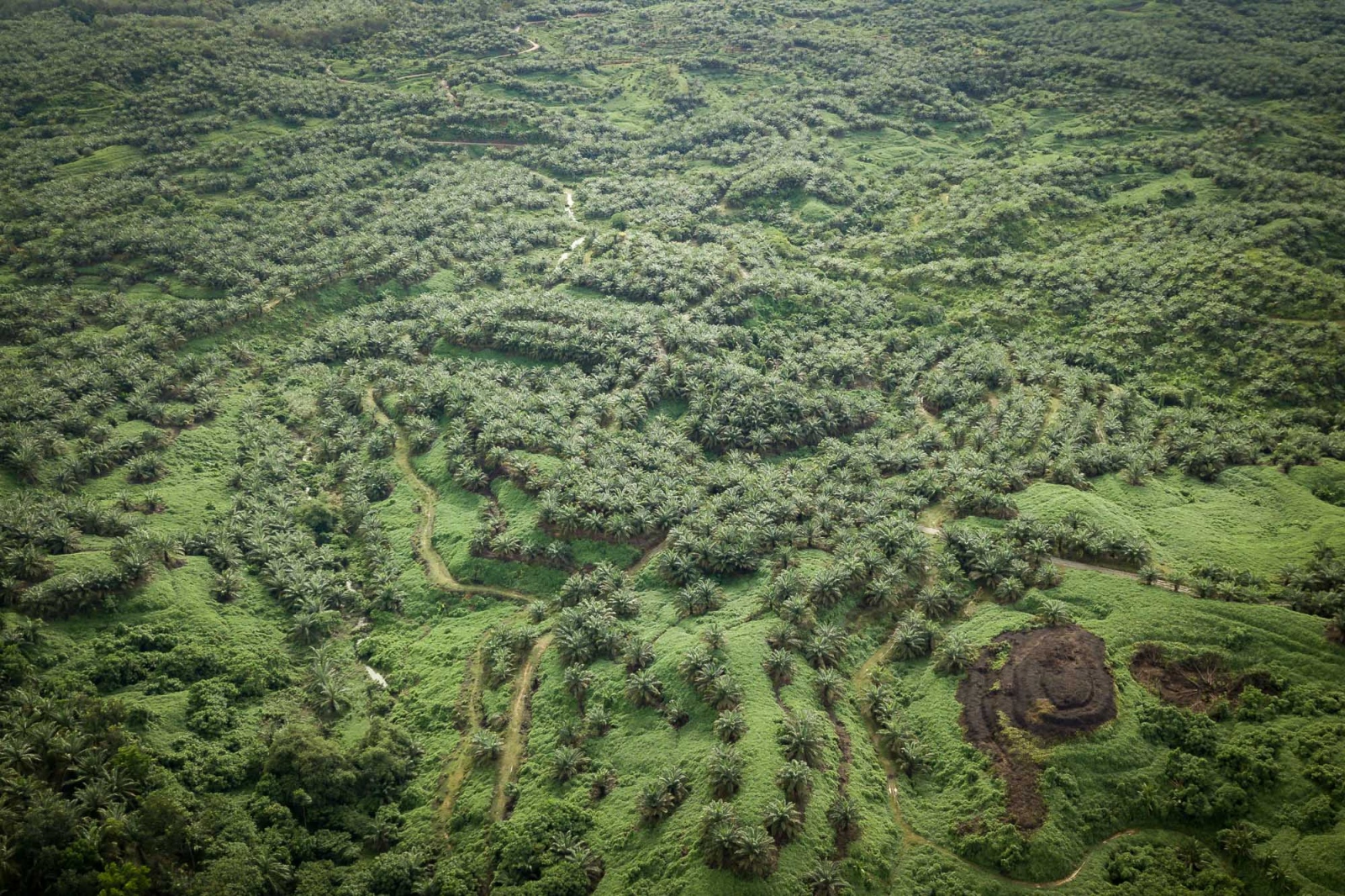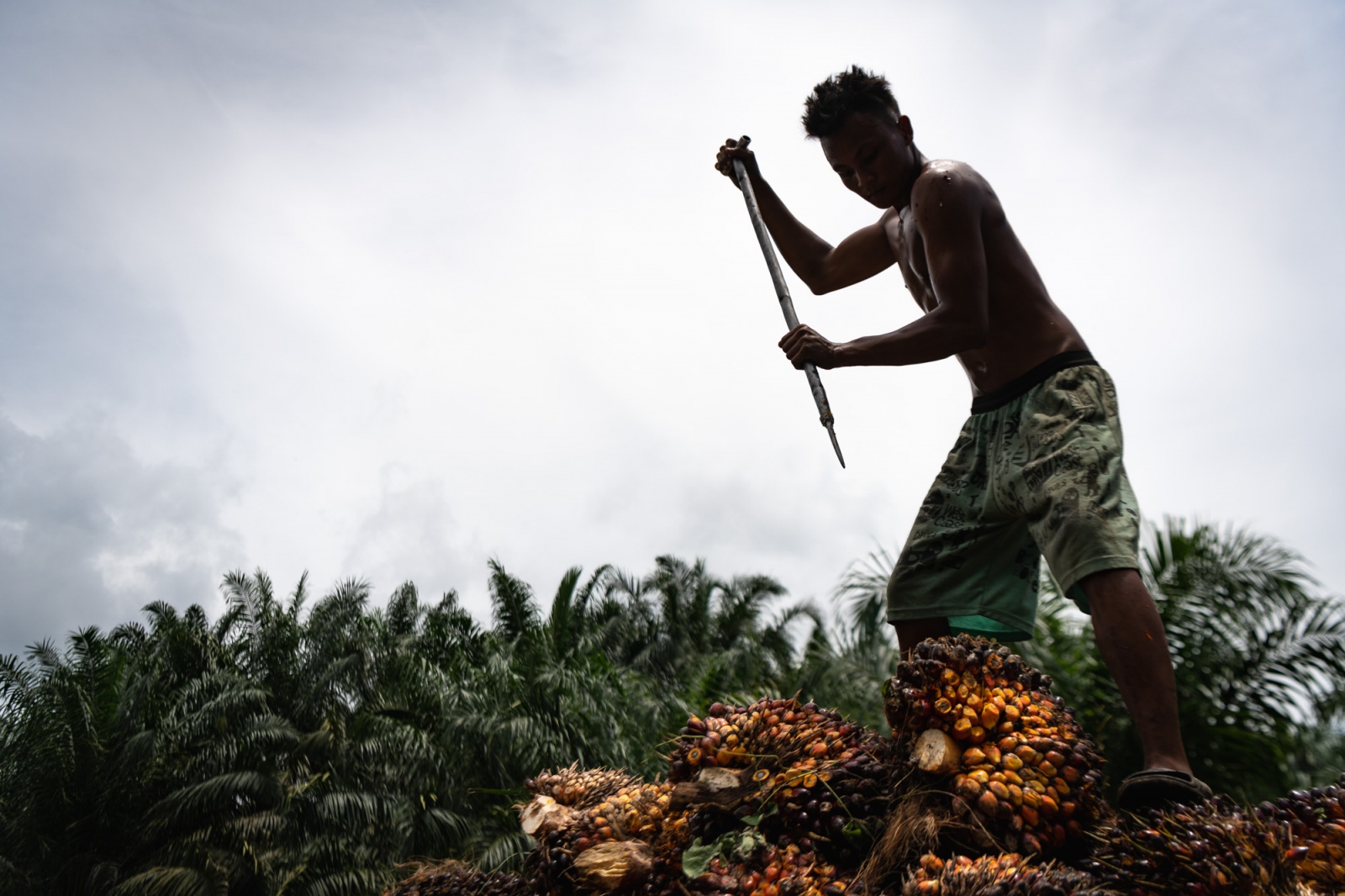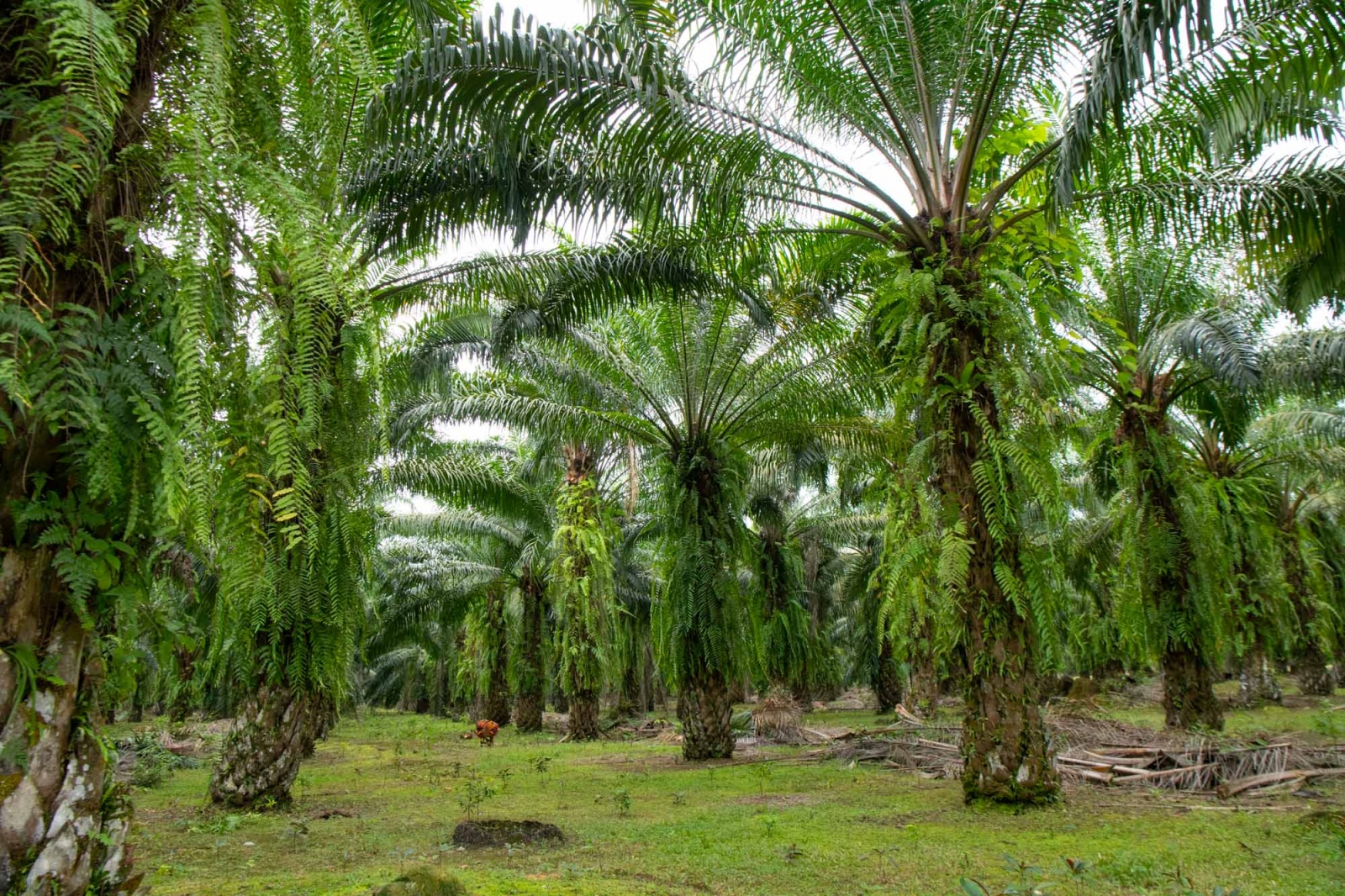Destruction and restoration, orangutan and people, conservation and livelihood; the story of palm oil in Sumatra is as complex as it is pressing.
In 2008 the Guinness Book of World Records declared that Indonesia was experiencing the fastest deforestation rate in the world. The continued destruction of rainforest has jeopardized not only a life sustaining ecosystem for people and wildlife alike, but also a global biological hot spot and carbon sink. In their place a new kind of ‘forest’ has emerged: palm oil.
In the fall of 2018, I traveled to Sumatra to witness and document the wholesale transformation of this region. At first glance, the sprawling greenery and tropical flavour of the palm oil tree is quite seductive. As if by magic, these trees produce fruit at an astounding pace, the oil of which is found in everything from bread and chocolate, to lipstick and shampoo. But after driving through kilometres and kilometres of these manufactured forests, an unquiet alarm started to creep up from the pit of my stomach.
The burgeoning global demand for palm oil has driven the torrid expansion of plantations, sprawling and uniform like a suburb, across Southeast Asia. In their wake, wildlife, people and local agriculture displaced. In the jungles of Sumatra, this has meant that the already critically endangered Sumatran orangutan are being pushed to the brink as their home disappears.
Derived from Malay and Indonesian words, the name orangutan means “person of the forest”. That those who first named these long-haired, orangish creatures, used the term ‘person’ (orang) was surely a recognition of the distinct similarities seen in what are now known as close relatives (genetically) to us humans. As I stared into the eyes of an orangutan for the first time, a child tenderly wrapped around her neck, I could not help but recognize a familiar look. Eyes full of depth and feeling, but also of unease and confusion at a world rapidly changing around her – the look of a concerned mother thinking about her child’s future.
Many feel the same concern. I spent two weeks on the ground in Sumatra with the Orangutan Information Centre (OIC), who have dedicated the last 18 years to conserving and protecting Sumatran orangutans (Pongo abelii) and their rainforest homes. In just the past year, OIC has planted over 88,000 trees, covering 80 hectares of land, on what was once an illegal palm oil plantation inside the Gunung Leuser National Park.
In the face of an impending conservation tragedy, the OIC are champions of hope. They cannot afford to be otherwise. My time in Sumatra opened my eyes to an issue that transcends the regional but is of global concern. From the seeds planted on the ground, to the products we buy at the store, the fate of an ecosystem and species may very well rest in the palm of our hands. This is not an indictment, but an opportunity.

























